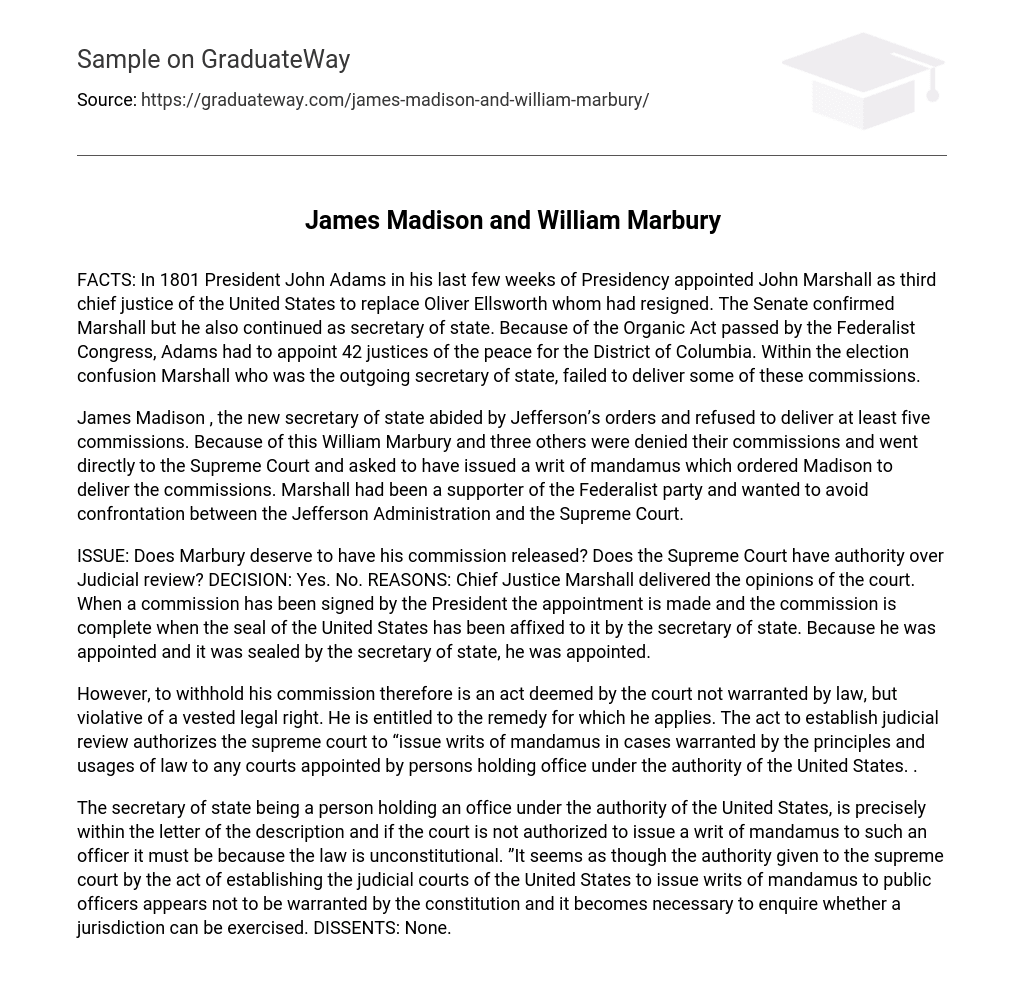FACTS: In 1801 President John Adams in his last few weeks of Presidency appointed John Marshall as third chief justice of the United States to replace Oliver Ellsworth whom had resigned. The Senate confirmed Marshall but he also continued as secretary of state. Because of the Organic Act passed by the Federalist Congress, Adams had to appoint 42 justices of the peace for the District of Columbia. Within the election confusion Marshall who was the outgoing secretary of state, failed to deliver some of these commissions.
James Madison , the new secretary of state abided by Jefferson’s orders and refused to deliver at least five commissions. Because of this William Marbury and three others were denied their commissions and went directly to the Supreme Court and asked to have issued a writ of mandamus which ordered Madison to deliver the commissions. Marshall had been a supporter of the Federalist party and wanted to avoid confrontation between the Jefferson Administration and the Supreme Court.
ISSUE: Does Marbury deserve to have his commission released? Does the Supreme Court have authority over Judicial review? DECISION: Yes. No. REASONS: Chief Justice Marshall delivered the opinions of the court. When a commission has been signed by the President the appointment is made and the commission is complete when the seal of the United States has been affixed to it by the secretary of state. Because he was appointed and it was sealed by the secretary of state, he was appointed.
However, to withhold his commission therefore is an act deemed by the court not warranted by law, but violative of a vested legal right. He is entitled to the remedy for which he applies. The act to establish judicial review authorizes the supreme court to “issue writs of mandamus in cases warranted by the principles and usages of law to any courts appointed by persons holding office under the authority of the United States. .
The secretary of state being a person holding an office under the authority of the United States, is precisely within the letter of the description and if the court is not authorized to issue a writ of mandamus to such an officer it must be because the law is unconstitutional. ”It seems as though the authority given to the supreme court by the act of establishing the judicial courts of the United States to issue writs of mandamus to public officers appears not to be warranted by the constitution and it becomes necessary to enquire whether a jurisdiction can be exercised. DISSENTS: None.





